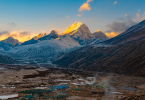SAN DIEGO – With Hurricane Jimena heading toward Baja, and September being one of the more active months of “Hurricane Season” each year, CSA Travel Protection compiled and offers 10 facts of U.S. hurricane trivia.
1. A tropical storm becomes a hurricane when winds reach 74 miles per hour.
2. The National Hurricane Center began naming tropical storms in 1953.
3. The naming of hurricanes alphabetically, alternating male and female names, began in 1979.
4. For the United States, September has had more major hurricanes than all other months combined.
5. However, five of the most devastating hurricanes did not occur in September: Katrina (August 2005), Andrew (August 1992), Camille (August 1969), Audrey (June 1957) and Hazel (October 1954).
6. The 2005 Atlantic hurricane season was the most active Atlantic hurricane season in recorded history, repeatedly shattering previous records.
7. Hurricane Katrina was the most costly hurricane in U.S. history, costing an estimated $75 billion.
8. The three deadliest hurricanes in US History are: Galveston, TX (1900) with 8,000 people reported killed; Lake Okeechobee, Fla. (1928) with 2,500 reported dead; and Katrina (2005) where 1,800 people perished in Louisiana and Texas.
9. Only three hurricanes, in the past 100 years, have hit landfall as a category 5: Florida Keys (1935); Camille (1969) in Mississippi, southeast Louisiana and Virginia; and Andrew (1989) in southeast Florida and southeast Louisiana.
10. The average life of a hurricane is nine days.
Storms are full of surprises, and while experts predict near-normal activity
this hurricane season, there are potential mishaps that can happen even if a
storm doesn’t make an appearance on a trip. Anticipating the unexpected – such
as medical emergencies, flight delays, identity theft or a natural disaster at
home before leaving – and covering it with travel insurance will protect
travelers from surprises. Travelers can find out more about CSA and travel
insurance by contacting their travel agent.






















